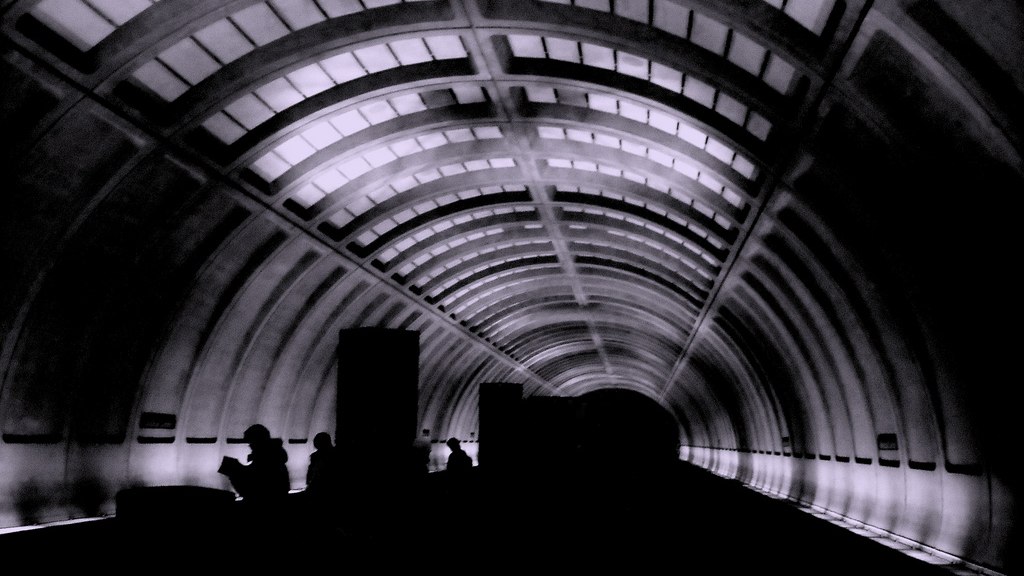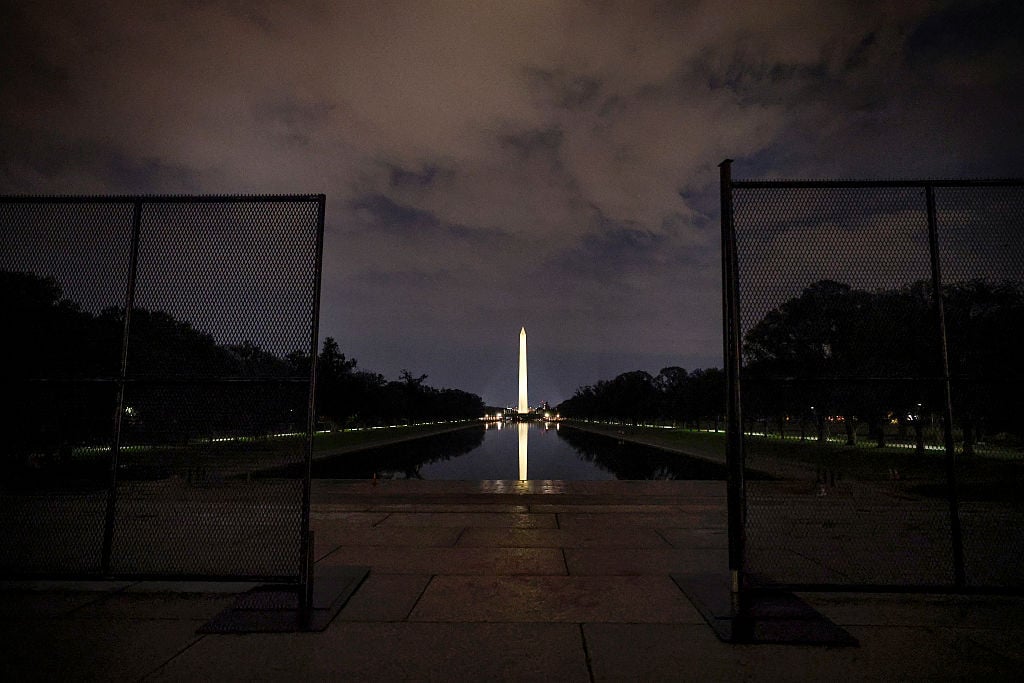The federal budget proposed Thursday by the White House seeks to make cuts to government spending so drastic, some economists are already predicting it could trigger a regional recession that could leave the Washington area “pretty screwed.” Among the reductions President Trump is proposing is a 13 percent cut to the Transportation Department, including cancellation of future grants by the Federal Transit Administration for capital projects, along with language that shifts overall transportation funding away from public transit and toward highway construction. If adopted, such policies would almost certainly harm the already fragile state of the Washington Metropolitan Area Transit Authority.
While Trump’s proposed budget—technically a “blueprint” that will be followed this spring by a lengthier document—does not address the $150 million Metro currently receives from the federal government, his administration has already started to pinch the cash-strapped transit agency. Transportation Secretary Elaine Chao announced last month she is withholding transit funding from DC, Maryland, and Virginia until the three jurisdictions fulfill a 2016 federal order to create a new safety board, a move that will cost Metro $4 million.
But bigger cuts to federal transit funding down the line could accelerate Metro’s tailspin, says Zachary M. Schrag, a historian at George Mason University and the author of The Great Society Subway, a history of the rail system published in 2006. Transit systems across the United States rely on the federal government for some of their budgets, but WMATA more than most. Making the future for that funding uncertain isn’t an absolute death sentence, but it could have ruinous effects for both the rail system and the region that relies on it. Here’s what Schrag has to say about how screwed Metro might be:
Metro’s been slogging through the SafeTrack maintenance schedule, but it’s still in rough shape. What does a loss of federal funding mean to the system?
We’re in unknown territory, which for a historian is particularly uncomfortable. We really don’t know what happens next. Metro’s never faced a system this bad in its history. Other systems like New York had a state to back it up. Metro has struggled to get that kind of support, especially from Virginia and Maryland. The thing I come back to is that Metro was designed as an alternative to freeways. If it collapses, more people are on the road. Part of what’s at stake here isn’t just Metro, but also the region’s freeway system. You could really be talking about the loss of function for big parts of the Interstate Highway System.
The budget the White House just proposed appears to cut transit projects in favor of highways.
It’s not just Metro, of course. Transit systems around the country have depended on the federal government for capital investments. But Metro did more than others. This country made the decision in 1966 that the federal government would have a major role in funding transportation on the ground. People can make the difference between roads and transit, but there’s not really one. A blood clot in your leg can kill you. We have had cases in the past, certainly when [Gerald] Ford came in and [Jimmy] Carter came in, they were skeptical about Metro. That led to alternative analyses in the 1970s that ultimately led to very little.
Trump has talked about a $1 trillion infrastructure program. Trying to be optimistic here, is that something that could help Metro?
It’s something Metro could benefit from if it were real. But what I’ve seen from the administration so far, the priority has been to provide tax cuts for very wealthy people. I don’t know if we’ll see anything at all. With luck, someone in the administration might realize this region is pretty innovative when it comes to funding transportation.
What happens if Metro loses federal funding? That regional sales tax idea seems to be a holy grail that’ll never actually happen.
A lot of people recognize Metro does produce wealth in term of the great boom in real-estate values the region has seen, especially around Metro stations. Sales taxes have been used elsewhere like in Los Angeles, but they’re regressive. There are ideas about taxing the land around Metro. States have their own priorities in terms of legislative priorities and legislative calendars.
So, how screwed are we?
It’s hard to know. When we think of cities that have really collapsed, its due to loss of industry. We think of Detroit, Camden, Baltimore. My colleague Stephen Fuller points out that even when federal employment drops, federal contracting has risen. I’m struggling to think of a case where a city has drowned in its own wealth. And yet I can’t think of how you handle hundreds of thousands of daily commutes without heavy rail. If people have jobs and can’t get to them, that’s a pretty stupid way to die.



















